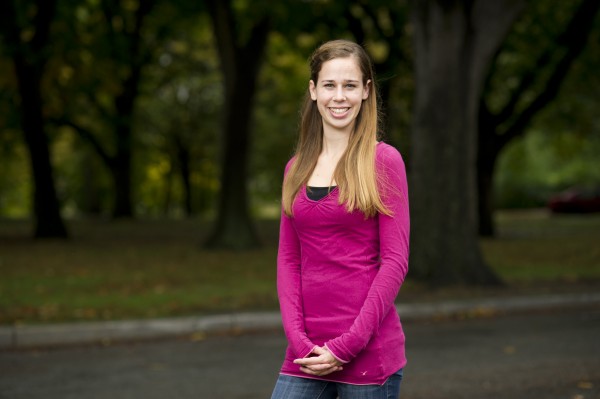The real NCIS

The forensics lab isn’t nearly as glamorous as television would have you think. Jacquelyn Horman would know. The chemistry major had watched her fair share of the police procedural dramas NCIS and CSI: Miami before landing a co-op job with the crime lab at the Mesa, Ariz., police department. The lab work — not glitzy but critical to investigations — strengthened her interest in the field, she said.
Last semester Horman got her dream co-op job, working with the special agents at the Naval Criminal Investigative Service at Camp Lejeune in North Carolina. Instead of analyzing endless blood and drug samples behind the workbench, Horman dusted for fingerprints, collected photographic evidence and generally learned how to handle herself in the presence of a dead body at a crime scene. “You have to detach yourself from it,” she said.
The most difficult aspect of the job was learning how to think like a criminal. “If I were dusting a car, they’d tell me to think, ‘Would they have leaned against it here?’ or ‘would they have jimmied the window?’” she said. “It got to the point where I would say, ‘If I were taking a radio out of a car, where would I put my hand?’”
Horman originally thought she wanted to work in the lab after graduating this winter, but her co-op experience redirected her desire toward working in the field. She has already had discussions with one city-level crime unit and hopes eventually to make it back to NCIS.
Horman believes her science background will help her solve criminal cases, saying, “What you do to analyze a science problem — being very detail oriented and exacting — can help in a case.” But she also noted that the field of forensic science has gained popularity over the last several years, making it important for job candidates to have a well-rounded background.
As a case in point, the criminal justice minor noted that several senior members of the NCIS unit had a wide variety of expertise, including one colleague who studied French literature in college.
The popularization of the field has also altered jury expectations in criminal trials. “They expect DNA,” Horman said, adding that sample collection is not a straightforward task and should not be considered the be all and end all of a case. “Everybody thinks it’s as easy to as it is on TV.”